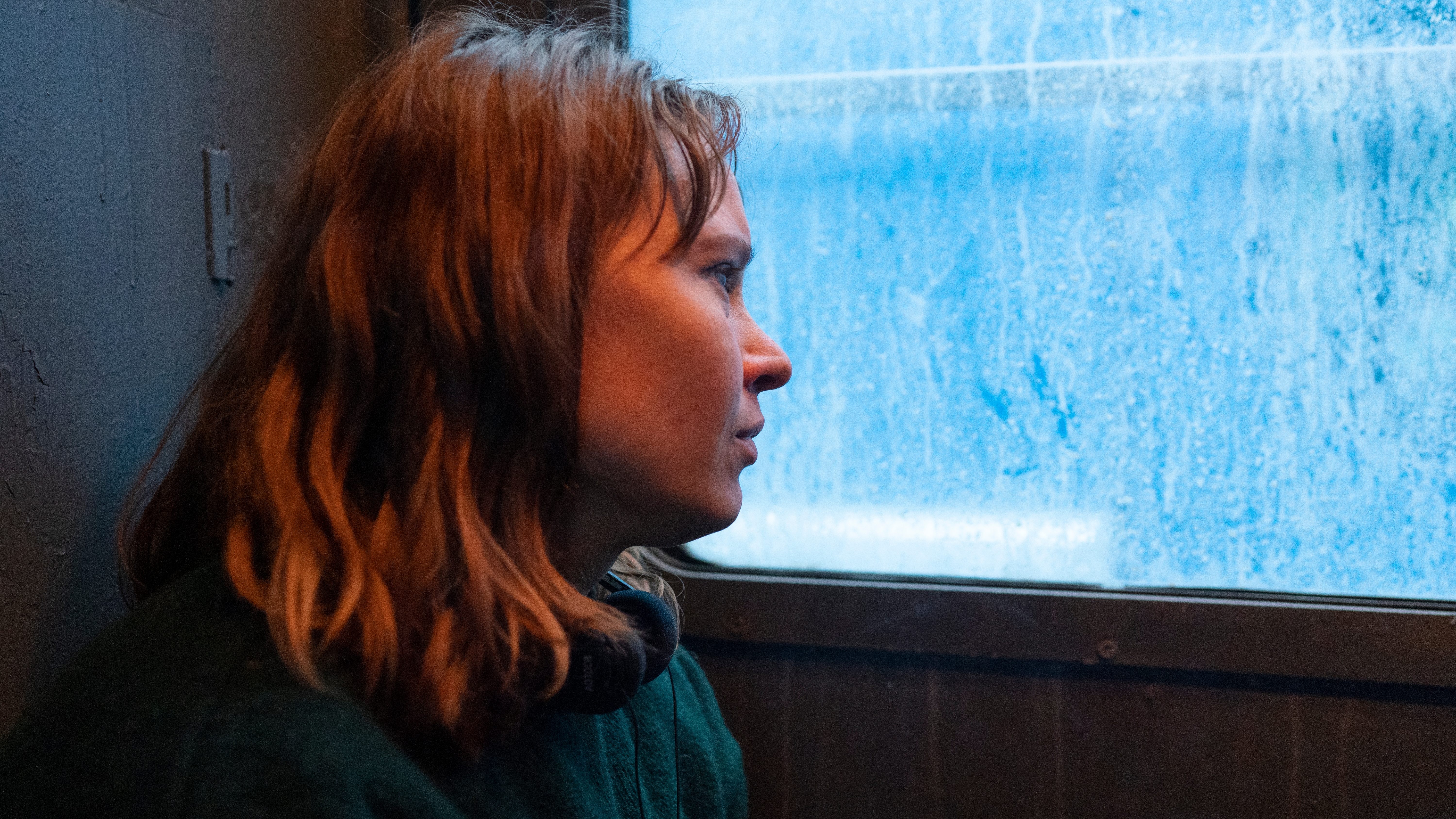Finnish prizewinner Compartment No. 6 proves that rom-com formula works perfectly well with subtitles
They’re opposites. They attract. Whaddaya need, a road map?
Film Reviews Compartment No. 6
For American audiences, Finnish cinema has long been more or less synonymous with morose deadpan comedy, as purveyed by Aki Kaurismäki (and to a lesser extent by his brother, Mika Kaurismäki). That might finally be about to change, though, as Juho Kuosmanen’s sophomore feature, Compartment No. 6, couldn’t be much more of a pure crowdpleaser.
That’s a rare description not only for subtitled movies on these shores but for major Cannes prizewinners; No. 6 shared the festival’s Grand Prix (basically second prize, despite its name) last year with Asghar Farhadi’s much more harrowing A Hero, suggesting that the jury couldn’t decide between sweet and sour. In the end, though, this charming quasi-rom-com adheres to the most reliable formula ever devised: Throw two characters who hate each other into a confined space and watch their rancor slowly turn into ardor.
Actually, the initial dislike flows primarily in one direction. Taking a planned vacation solo after her Russian girlfriend was forced to cancel for work reasons, Finnish archaeology student Laura (Seidi Haarla) is traveling by train from Moscow to Murmansk—a distance of roughly 1,000 miles, encompassing multiple days—in order to see the latter’s celebrated petroglyphs. What the hell is a petrogylph? That’s just what Laura’s extremely chatty Russian bunkmate, Ljoha (Yuriy Borisov), would like to know. A bundle of pugnacious energy with a shaved head and a mercurial temperament, Ljoha bombards Laura with so many asinine comments and rude questions in their first “conversation” that she flees the train when it stops in Saint Petersburg, calling her girlfriend (from a pay phone; the film seems to be set about 25 years ago) in the hope of being summoned back to Moscow. When that doesn’t happen, she glumly trudges back to her compartment and does her best to ignore the asshole a few feet away.
That proximity represents a visual challenge for Kuosmanen, who appears to welcome it; his debut feature, The Happiest Day In The Life of Olli Mäki, was shot in monochrome 16mm, mimicking the look of low-budget films from the period in which it was set (the early ’60s). Here, he deliberately chooses the widest aspect ratio for a story set in a tightly cramped space, thereby emphasizing the lack of distance between his two main characters. Even when Laura escapes into the corridor for a while, she’s still stuck in a frame that itself looks hemmed in on both sides, as if configured the wrong way. That approach might have become oppressive over the course of nearly two hours, though, and Compartment No. 6 really isn’t looking to discomfit. So Laura and Ljoha’s bond takes root during an overnight excursion to visit an elderly woman (presumably Ljoha’s grandmother, though he refuses to specify), and the film’s final act leaves the train entirely, as Ljoha attempts to get Laura to her petroglyphs (they’re ancient rock carvings) even though everyone insists that the area isn’t accessible during the dead of winter.
Ultimately, this sort of opposites-attract tale relies on the improbable chemistry of its oil and its water. Haarla, who looks a bit like the Finnish Mary Lynn Rajskub, gives Laura a furtively playful quality that nicely balances her loneliness and frustration; one of the film’s funniest moments sees Laura ostensibly teach Ljoha how to say “I love you” in Finnish—a secret prank that eventually has a lovely payoff. Borisov pulls off a trickier task, making Ljoha almost unbearably obnoxious (the lack of hair helps; he looks like Ewan McGregor in Trainspotting, with similar wild-eyed energy) and then executing a nearly imperceptible metamorphosis into downright lovable, without ever betraying the character’s essential nature.
Few others intrude upon this delicate duet, though Ljoha throws a sullen, jealous fit when Laura finds a tall, handsome fellow Finn on the train and invites him to their compartment (where he further tortures Ljoha by strumming an acoustic guitar), and Laura engages in a touching parallel thaw with a female conductor, whose attitude toward her shifts from hostile to solicitous over the course of the journey. With the exception of its big romantic climax, which doesn’t remotely play out as expected (and is all the more effective for keeping one party’s emotions somewhat opaque), Compartment No. 6 could hardly be more conventional or less audacious, and that’s fine. Not every foreign-language film needs to reinvent the wheel, provided the traction holds. This may not be Punch-Drunk Love, but neither is it Must Love Dogs.
6 Comments
Modern rom-coms are one of the genres that are most in need of a shakeup. This sounds like it has some potential in that direction.
Yes, it does, especially since the trailer implies Laura is lesbian or bisexual.Given the praise this film’s getting, I presume it doesn’t push finding “the right guy” to be heterosexually intimate with as a positive.
It’s amazing how many of cinema’s greatest directors used to make incredible romantic comedies. Billy Wilder, Ernst Lubitsch, William Wyler, Howard Hawks etc.And then somewhere down the line, romantic comedies turned into disposable formulaic fluff and 90% of writers/directors stopped putting any real effort into them.
Howard Hawks made His Girl Friday AND Bringing Up Baby, and yet those comedies are overshadowed by his westerns on his resume. Incredible
He thinks I taught him to say “I love you” in Finnish; he’s actually saying “Drop your panties Sir Richard, I cannot wait until lunchtime.”
“For American audiences, Finnish cinema has long been more or less synonymous with morose deadpan comedy”
Uh, for American audiences Finnish cinema is synonymous with absolutely nothing